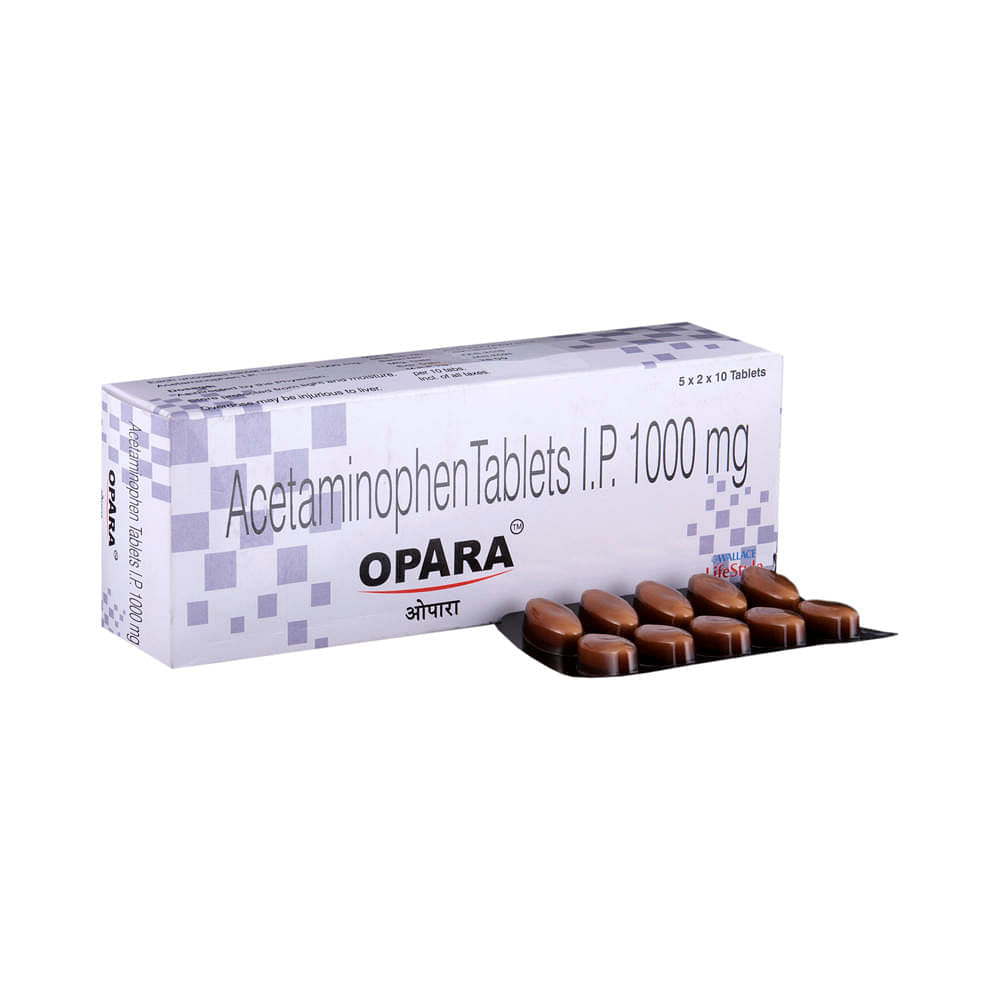
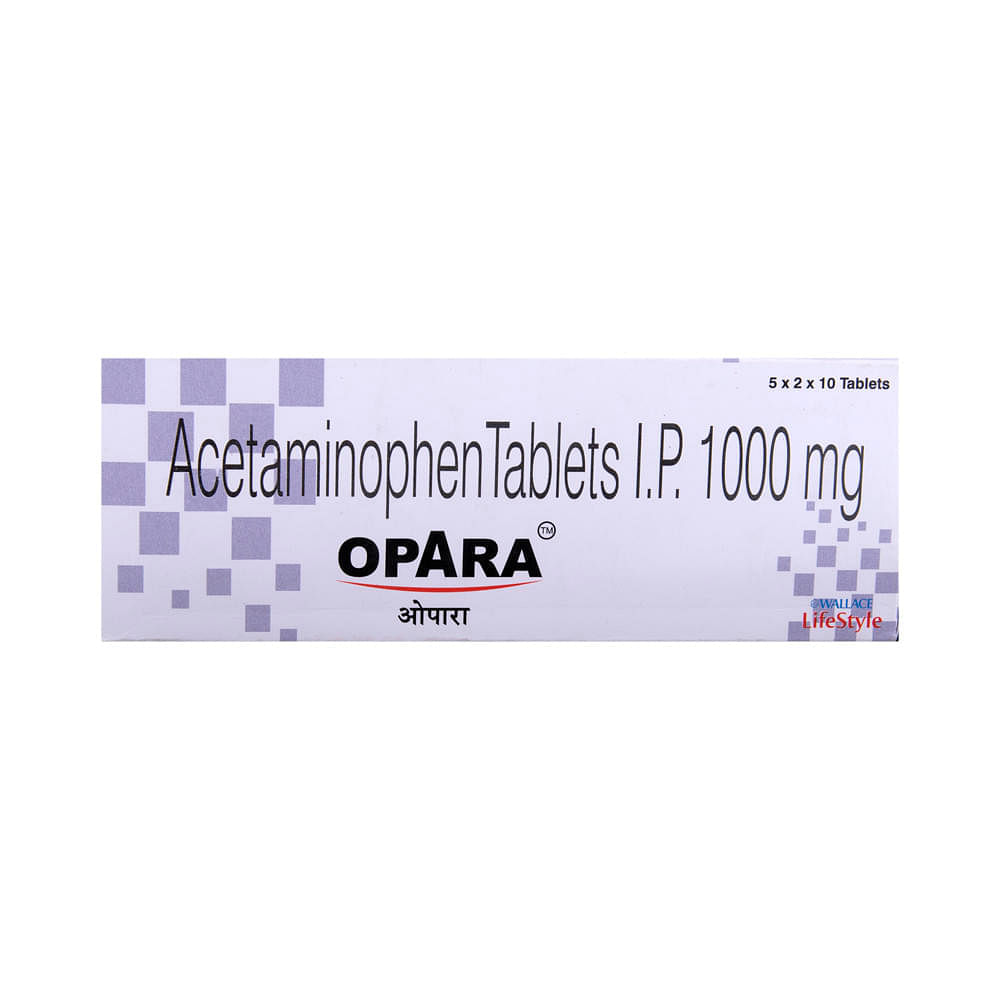
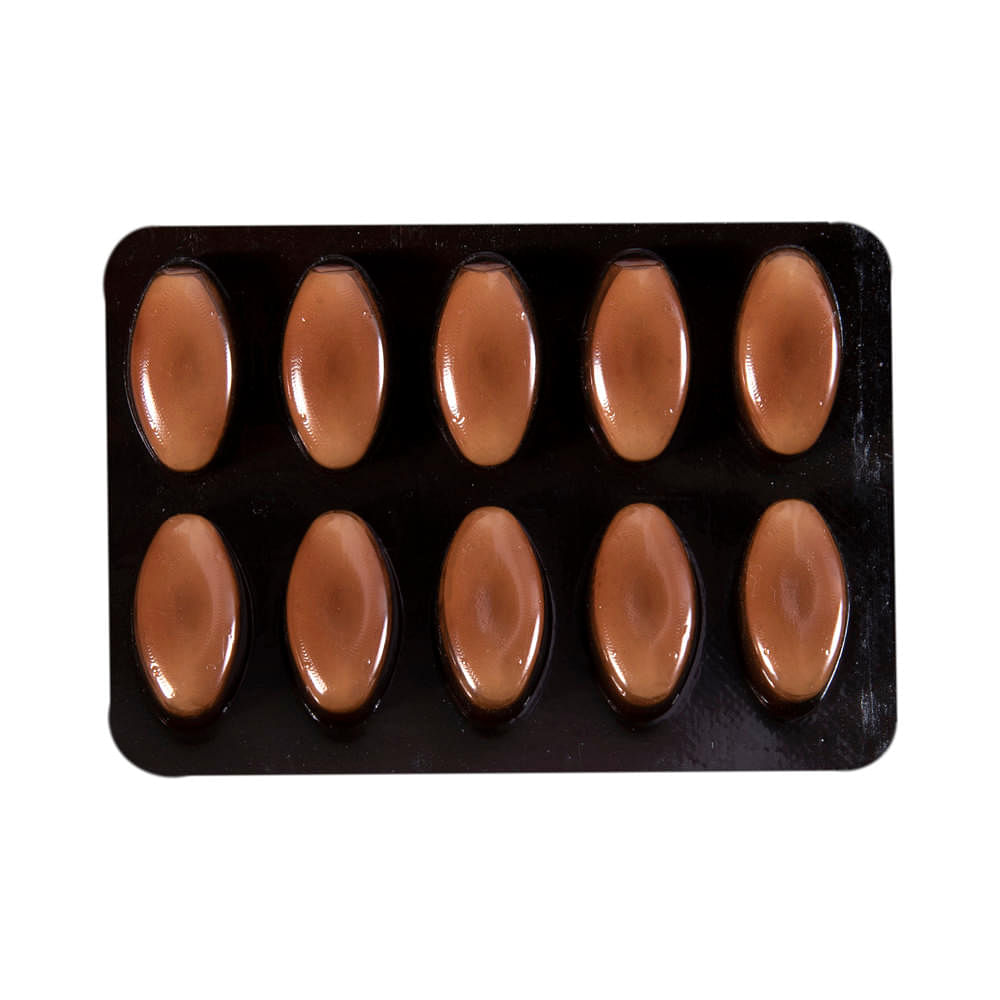
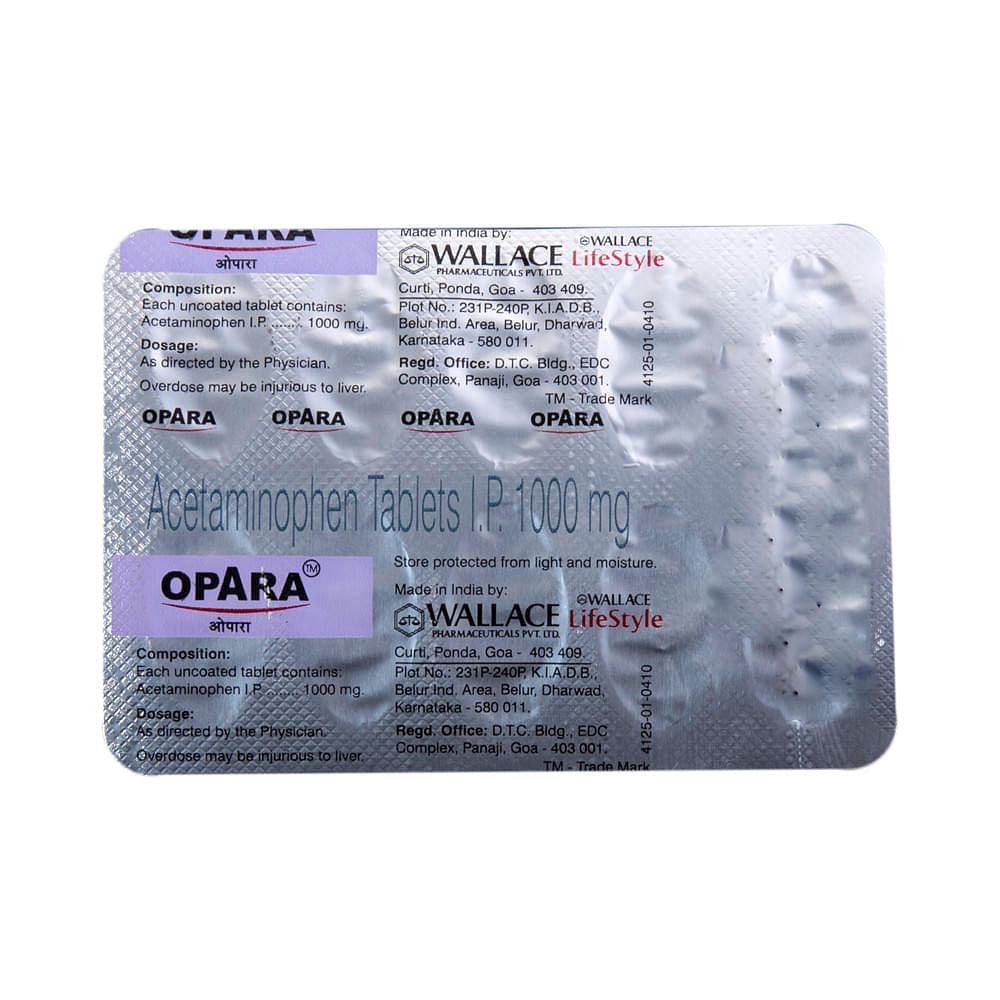
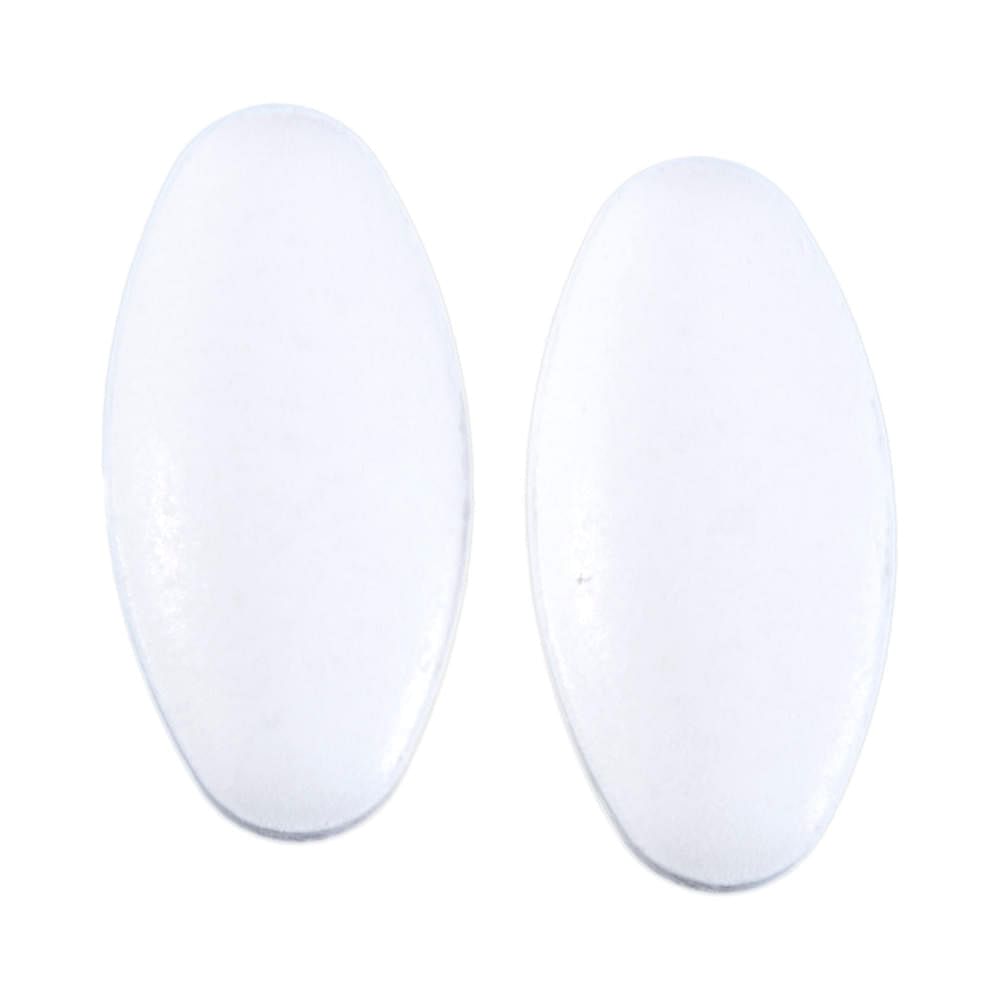
Opara Tablet
Manufacturer
Wallace Pharmaceuticals Pvt Ltd
Salt Composition
Paracetamol (1000mg)
Key Information
Short Description
Opara Tablet helps relieve pain and fever by blocking the release of certain chemical messengers responsible for fever and pain.
Dosage Form
Tablet
Introduction
Opara Tablet is used to treat headaches, migraine, toothaches, sore throats, period (menstrual) pains, arthritis, muscle aches, and the common cold. It is an analgesic (pain reliever) and anti-pyretic (fever reducer) that works by blocking the release of certain chemical messengers that cause pain and fever.
Directions for Use
Take this medicine in the dose and duration as advised by your doctor. Swallow it as a whole. Do not chew, crush or break it. Opara Tablet is to be taken with food.
How it works
Opara Tablet is an analgesic (pain reliever) and anti-pyretic (fever reducer). It works by blocking the release of certain chemical messengers that cause pain and fever.
Quick Tips
Take Opara Tablet with food or milk to prevent an upset stomach. Take it as per the dose and duration prescribed by your doctor. Long-term use may lead to serious complications such as stomach bleeding and kidney problems. Do not take indigestion remedies (antacids) within two hours of taking Opara Tablet. Avoid consuming alcohol while taking this medicine as it can increase your risk of stomach problems. Inform your doctor if you have liver disease as your dose may need to be adjusted.
Related Medicines
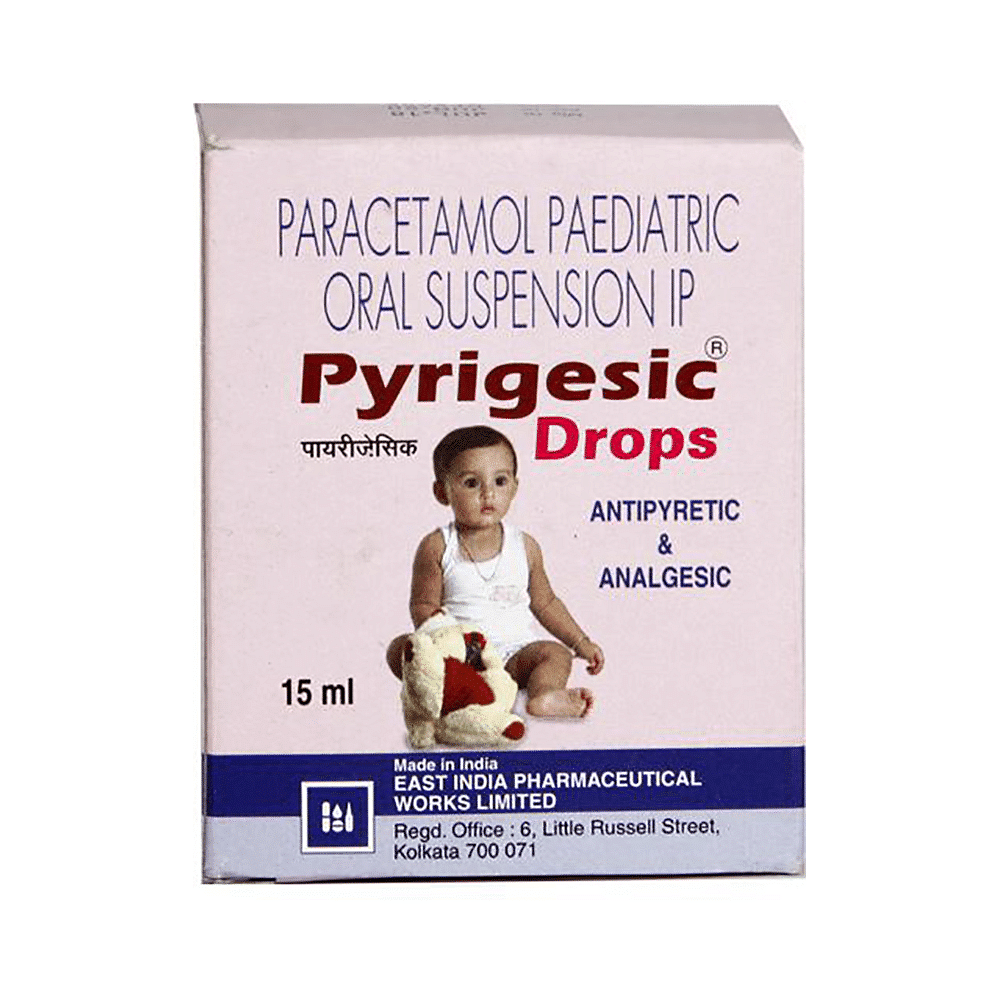
Pyrigesic Drop
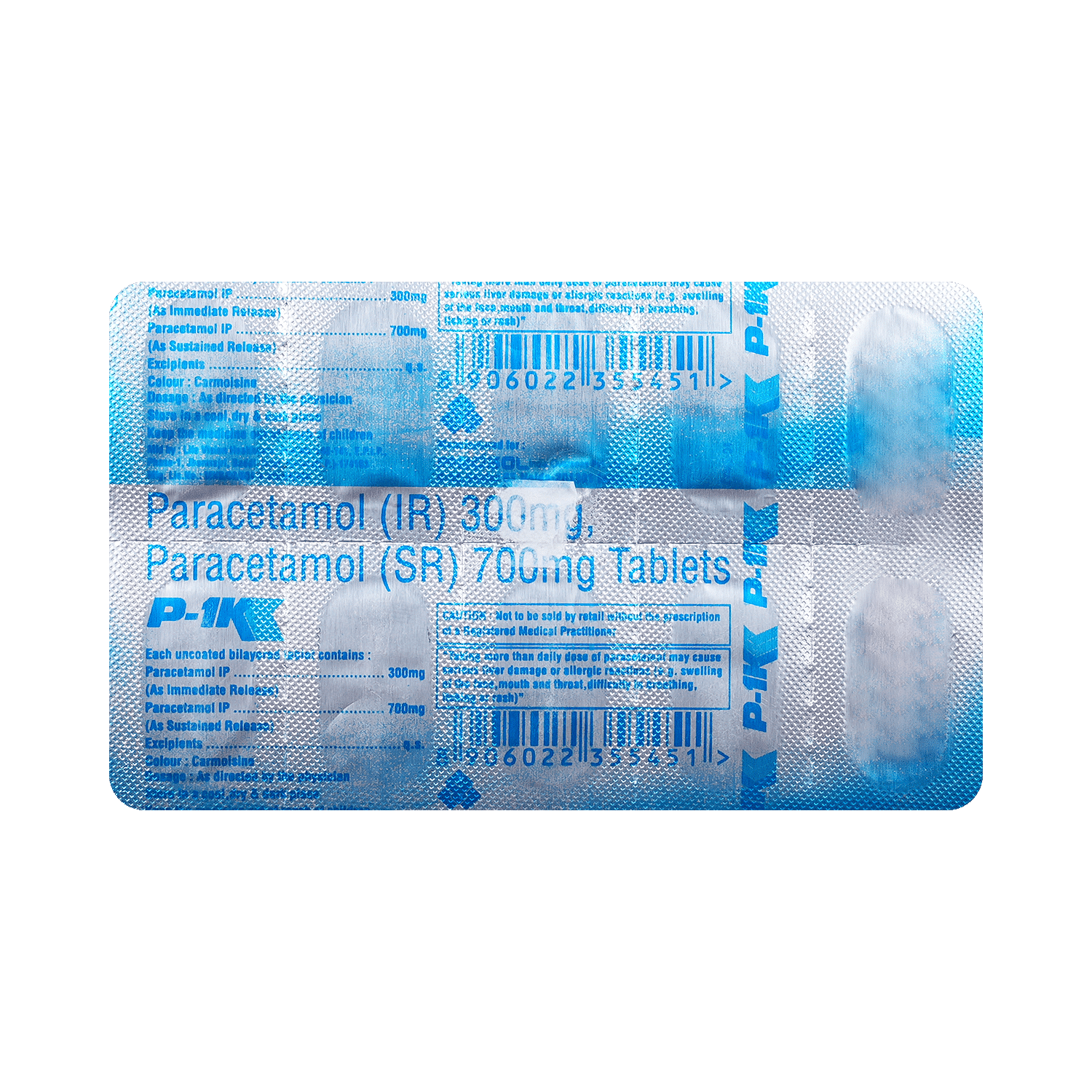
P-1K Tablet
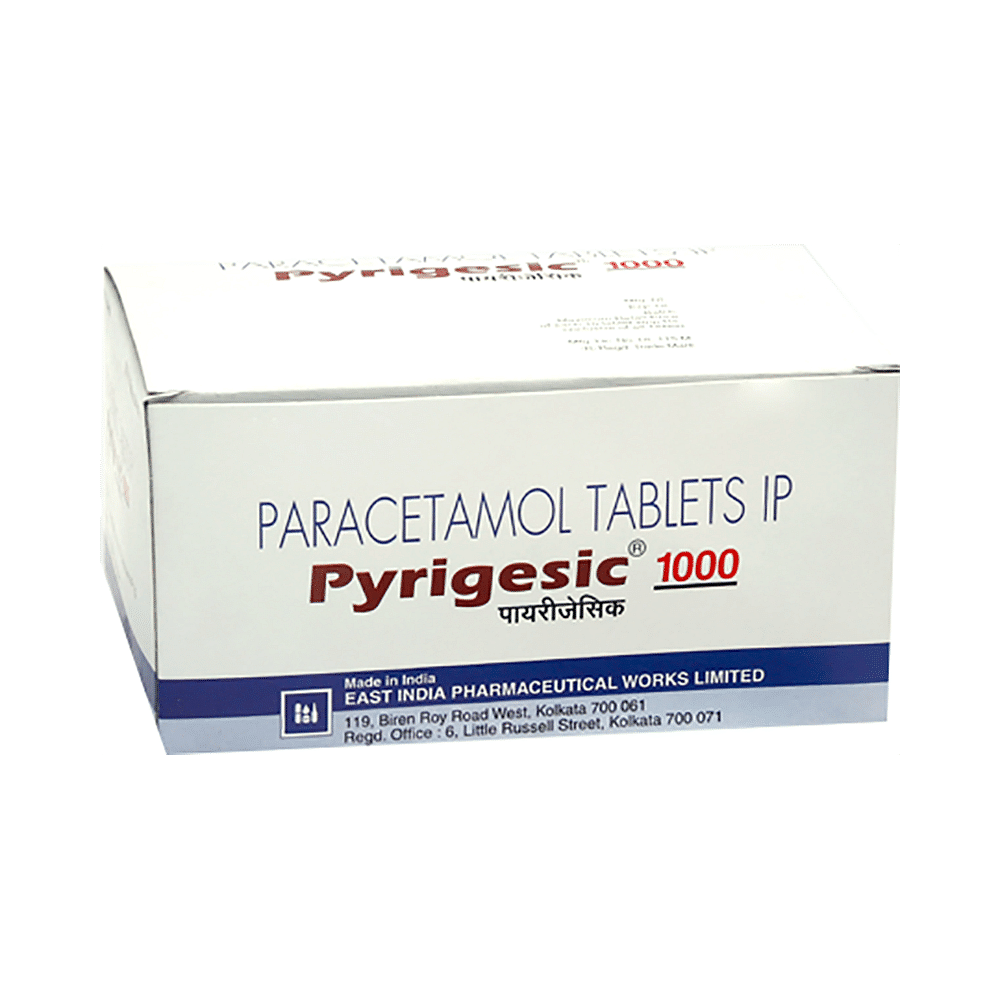
Pyrigesic 1000 Tablet

Dolo 1000mg Tablet

Pafout 1000mg Tablet

Actimin 1000mg Tablet

Pacimol 1000mg Tablet
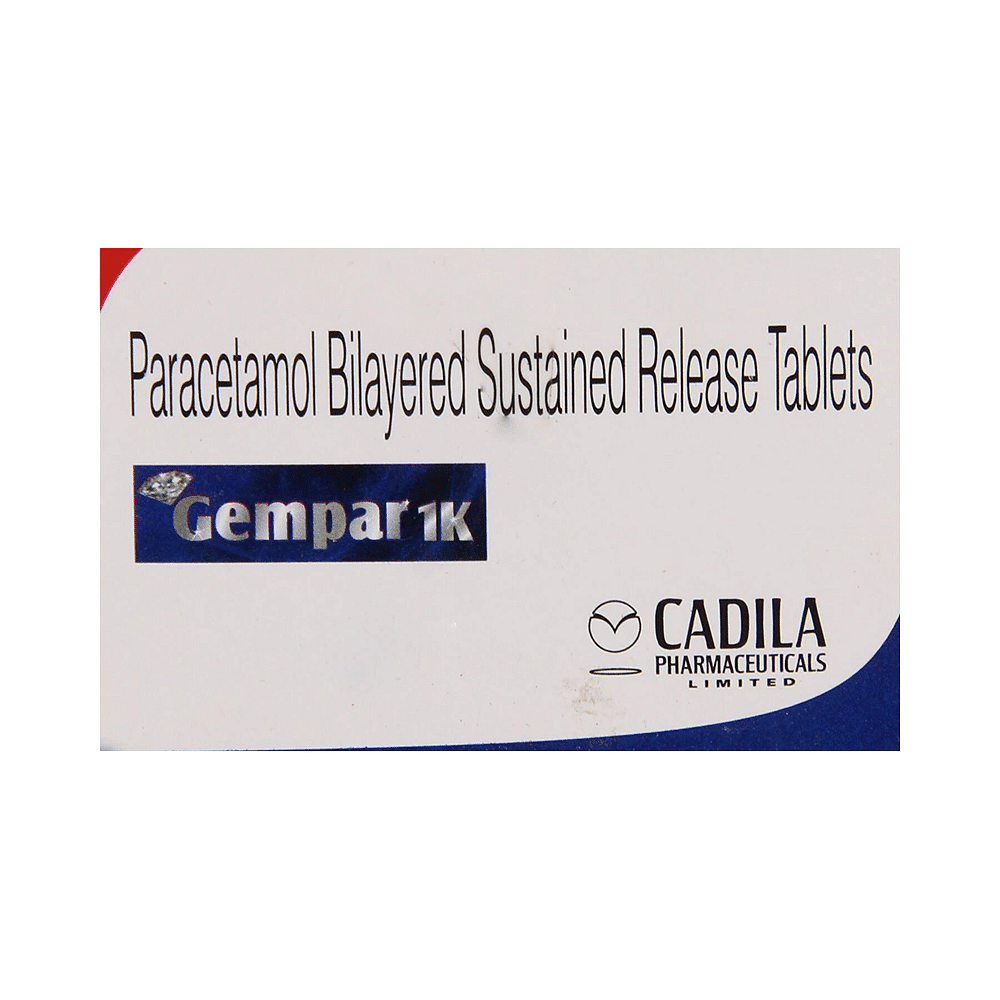
Gempar 1K Tablet

Arden 1000 Tablet

Pyro 1000mg Tablet
Frequently asked questions
What happens if I vomit after taking Opara Tablet?
If you vomit within 30 minutes of taking a dose of Opara Tablet, you should retake the same dose again. If you vomit after 30 minutes have passed since your last dose, you do not need to take another one until it's time for your next standard dose.
When can I expect relief from symptoms after taking Opara Tablet?
You will usually start feeling better about half an hour after taking a dose of Opara Tablet.
How often should I take Opara Tablet?
For adults and children over 12 years, you should only take four doses of Opara Tablet in 24 hours. There must be at least a 4-hour gap between each dose. Do not take Opara Tablet for more than three days without consulting a doctor first.
Does Opara Tablet cause babies to become sleepy?
No, Opara Tablet does not make babies sleepy. It is used as a pain-relieving medicine and to control high fever in children.
Is Opara Tablet safe for use by children?
Opara Tablet can be considered safe for children when it's used exactly as directed by their doctor.
Is Opara Tablet an antibiotic medication?
No, Opara Tablet is not an antibiotic. It functions as a painkiller and fever-reducing medicine.
Can I take Opara Tablet and ibuprofen together?
While both are safe medications on their own, they should not be used together. Consult your doctor if you're unsure about this.
How long does it typically take for Opara Tablet to start working?
Opara Tablet starts working within 30-45 minutes and its effects can usually be seen during this time. It is advised to follow the dosage schedule provided by your doctor. If you experience any bothersome side effects, consult your doctor.
What are the potential serious side effects of taking too much Opara Tablet?
Taking more than the prescribed dose may cause severe liver injury that could be life-threatening, as well as kidney damage and a decreased platelet count. Early symptoms of an overdose include nausea, vomiting, and general tiredness. If you suspect an overdose, contact your doctor or reach emergency services right away.
Can Opara Tablet lead to nausea and vomiting?
Yes, taking Opara Tablet may cause nausea and vomiting. To minimize this risk, consider taking it with milk, food, or antacids. Avoid consuming fatty or fried foods along with the medication. If you experience persistent vomiting, drink plenty of water or other fluids by taking small sips. Consult your doctor if you notice signs of dehydration.
Is Opara Tablet helpful in relieving stomach pain due to indigestion?
No, Opara Tablet should not be used for stomach pain without consulting a doctor first. This medication may increase stomach acid secretion which could exacerbate an underlying condition.
Can I take Opara Tablet with antibiotics?
Taking Opara Tablet and antibiotics together should cause no problems. However, it's always best to consult your doctor before taking any medications.


